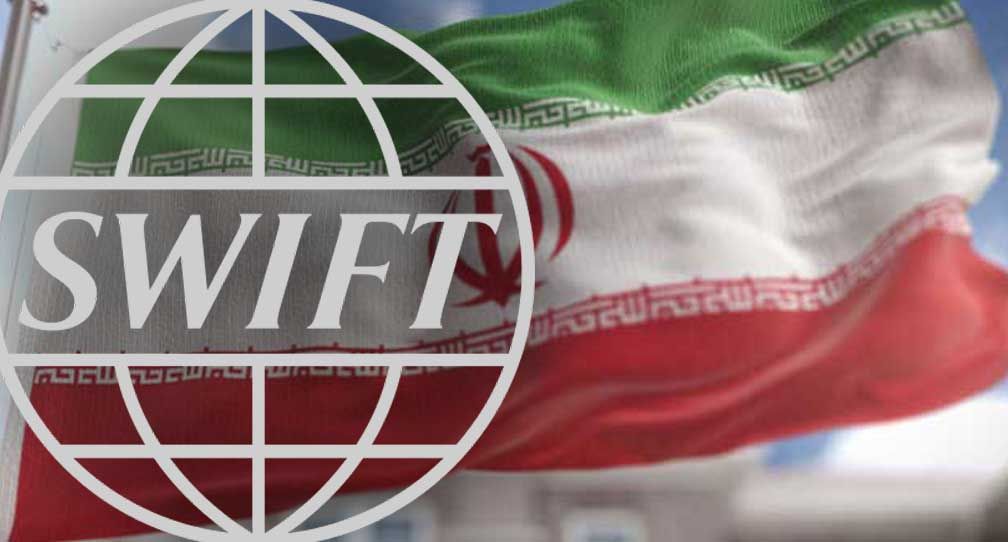Not very SWIFT
By Aaron Arnold | November 6, 2018
 Sanctioning SWIFT
Sanctioning SWIFT
This week the Trump administration imposed sweeping sanctions against Iran’s energy, shipping, financial, and insurance industries—expecting US trading partners and allies to end business ties with Iran. At a press conference on Monday, US Secretary of State Mike Pompeo stated that the objective of these sanctions “is to starve the Iranian regime of the revenue it uses to fund violent and destabilizing activities throughout the Middle East and indeed around the world,” but did not elaborate further on exactly how the sanctions are part of any broader strategic efforts (or what exactly the US strategy actually is).
From the Trump administration’s perspective, a key to its “maximum pressure” campaign against Iran is to isolate the country from the global financial system. To do so, Trump needs SWIFT—the Belgium-based financial messaging service—to boot Iran from its networks. The “Society for Worldwide Interbank Financial Telecommunication,” technically a cooperative, provides the bulk of the world’s secure financial messaging services; the SWIFT network doesn’t actually transfer funds but instead sends payment orders between institutions, using a set of standardized 8-to-11-digit long identification codes to safely and securely send instructions and information from one financial institution to another in a reliable manner. In the years since the system was set up in the early 1970s, it has become one of the keys to the global financial system, used by more than 10,000 financial institutions in over 212 countries.
And SWIFT is big—really big. So far this year, the company processed more than 38 million messages per month, on average.
So, attacking SWIFT is a tempting prospect indeed for the Trump Administration, helping to effectively lock Iran out of the global financial system. In fact, this was the strategy that the Obama administration and the European Union pursued in 2012 when SWIFT expelled Iran from its networks. And during the nuclear negotiations, connecting back to SWIFT was a major condition on Tehran’s part.
As the Trump administration moves closer and closer to its sanctions deadlines this week, there has been much speculation in the press about whether or not President Trump would seek secondary sanctions against SWIFT. (The phrase “secondary sanctions” loosely refers to the United States’ slapping of unilateral financial penalties, trade barriers, tariffs, or other restrictions on EU companies for conducting business with Iran, while the phrase “sanctions” alone generally refers to US penalties aimed at US institutions doing business with that country.)
Not only would sanctioning SWIFT be a major escalation in US sanctions policy, but an entirely reckless decision. Realistically, enforcing sanctions against SWIFT would have significant consequences for both US and global financial system—upending decades of international norms.
An indiscriminate weapon. Imposing sanctions against a company that nearly all banks use would be tricky—and unfortunately, details on how the administration would impose sanctions have been scant. One option would be to name SWIFT as an offender (or “designate” them, in the official jargon) under an existing sanctions regime. This would be an utterly bizarre approach, given that doing so would likely require US banks to stop using SWIFT, quickly leading to blowback against American banks. In other words, by forcing SWIFT to kick Iran from its networks, the Trump administration would also simultaneously block American banks from international banking networks.
A second option would be to designate specific SWIFT board members. That is, private, mostly European Union citizens. This route may limit damage to American banks—at least to some degree—but is not without consequences. First, SWIFT always has the option of taking retaliatory measures against US interests. (Though this would be unlikely, given SWIFT’s revenue streams from dollar-denominated transactions and US banks.)
A more likely scenario would be a protracted legal battle in EU and US courts—something that the Trump administration should avoid. In the European Union, board members designated as targets of sanctions by the US Treasury Department’s enforcement agency, the Office of Foreign Assets Control, can sue to recoup financial harm under the EU’s recently updated “Blocking Statute”—a regulation recently updated by the European Council that provides EU entities with legal remedies to US sanctions. In the United States, those who have been designated by the Office of Foreign Assets Control as owned, controlled by, acting for, or on behalf of targeted countries like Iran have both administrative and judicial rights: They can petition the office directly, or sue in court.
Unfortunately, the legal precedent for taking someone off the Office of Foreign Assets Control’s list of bad actors is scant—due in part to the fact that few designees actually take their claim to court. This lack of legal precedent, however, may not bode well for the Trump administration, nor for the ability of the United States to impose unilateral sanctions. In other words, the administration may want to avoid costly legal battles that ultimately limit the authority of the US Treasury Department’s Office of Foreign Asset Control—a potentially politically embarrassing legal defeat, and a substantial blow to US sanctions policy.
Meanwhile, SWIFT is already feeling the pressure to abide by US sanctions. As Secretary Pompeo quipped at a press conference on Monday: “Doing business with Iran in defiance of our sanctions will ultimately be a much more painful business decision than pulling out of Iran.”
Bending to these prevailing winds, SWIFT decided on Monday to disconnect some Iranian banks from its network “in the interest of the stability and integrity of the wider global financial system”—effectively severing Iran’s ties to much, if not all, of the global financial system.
Given that SWIFT has decided to partially give in and disconnect some Iranian banks from its services, the ball is now in Europe’s court. On one hand, EU leaders may force SWIFT to ignore Trump’s sanctions—not just to save the Iran deal but to push back against American extraterritoriality.
On the other hand, doing so could ultimately result a protracted standoff that pits a dollar-dominated financial system against the rest of the world.
Either way, everyone seems to lose.
Together, we make the world safer.
The Bulletin elevates expert voices above the noise. But as an independent nonprofit organization, our operations depend on the support of readers like you. Help us continue to deliver quality journalism that holds leaders accountable. Your support of our work at any level is important. In return, we promise our coverage will be understandable, influential, vigilant, solution-oriented, and fair-minded. Together we can make a difference.
Keywords: Iran, Iran deal, JCPOA, SWIFT, economic sanctions
Topics: Analysis, Special Topics















Since SWIFT has in the past acted as a tool of Washington, engaging in massive criminal activities at the behest of the US government — in particular, passing on details of financial transfers etc. of private citizens in the EU and elsewhere in clear violation of the law — and since the governments of EU countries have done little or nothing to penalize this, I don’t think Washington needs to worry much about “blowback” from them.